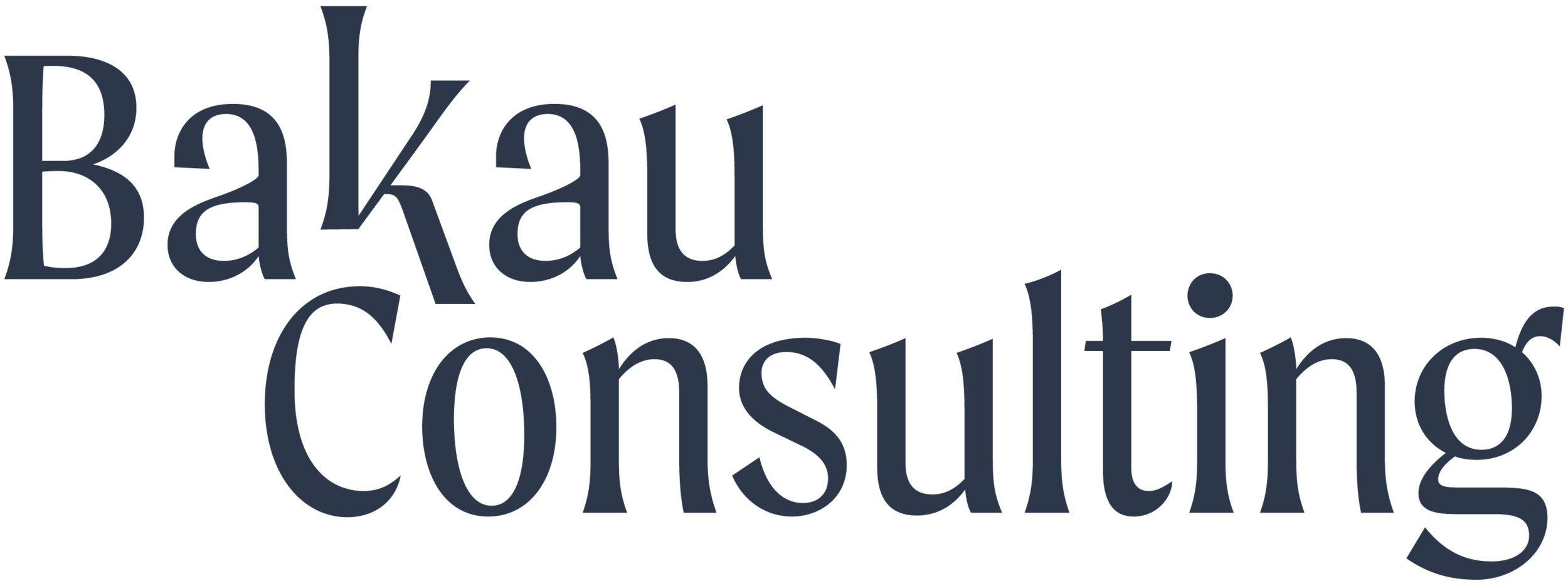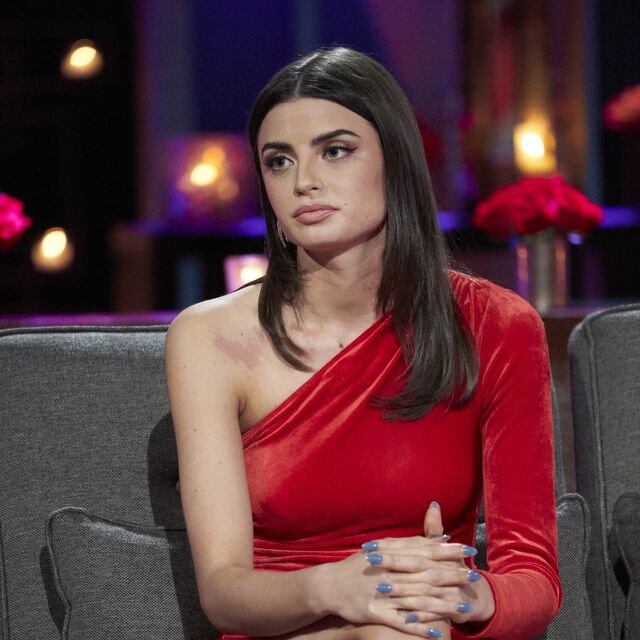Wrong for the Wrong Reasons
Rachael Kirkconnell’s self-blame was just like an episode of the Bachelor: a shortened version of a fuller picture.
By Becca Schwenk
*Content warning: racism, death
We at Bakau Consulting are committed to justice, equity, diversity and inclusion in all aspects of life. So committed, in fact, that we’re constantly noticing injustice, even when we’re not actively trying to. In our leisure time, our minds are still ticking away.
For some of us, said leisure time is spent engaged in guilty pleasures, of which my personal favourite is watching The Bachelor (watching is an understatement, I can’t resist the podcasts either). I’m not alone here, but I won’t reveal my co-viewers. True to form, we tend to convene after episodes, dissecting them through a lens of anti-oppression. Hence why I’m about to dissect some recent Bachelor developments from that very same lens.
The Bachelor franchise has a deep seated habit of treating oppressive issues as though they are isolated from their environment.
Moments addressing racist behaviour have painted contestants as ignorant and audacious, with no further analysis of factors leading to said ignorance and audacity. This same dynamic reared its head in Rachel Kirkconnell’s After the Final Rose appearance… which we’ll get to soon.
When former Bachelorette Rachel Lindsay was featured (read: tokenistically expected to do the franchise’s emotional labour as a Black woman) on Peter Weber’s Women Tell All to address online bullying, “racism” was bound to the subtext in favour of language like hate, meanness, bullying, negativity. Race was alluded to in turns of speech like “the colour of my skin,” but rarely explicitly named. Chris Harrison spoke on behalf of the franchise in a vague condemnation of “hate” directed at elusive internet bullies.
These choices gloss over the potency of the issues themselves. Condemning cyberbullies prolongs the timeline in which the Bachelor franchise points to not only the perpetrators of “hate,” but also the systems within which these people’s values formed in the first place. When we hate something, we’re usually aware that we hate it. If you hated your high school bully, you were probably tuned in to those feelings. If you hate pineapple on pizza, you likely feel seen by internet memes ridiculing the topping. While hatred towards Bachelor contestants may be conscious and intentional, speaking simply to hate focuses on the symptom rather than the core problem causing the symptom.
When it comes to Bachelor participants’ displays of racism, although it typically appeared to be less conscious than cyberbullies’ online harassment, it is still connected to the same system: racism. When Lee Garret’s tweets surfaced; Garrett Yrigoyen’s social media likes and opinions came to light; Chris Harrison’s interview was aired; and Rachael Kirkconnell’s behaviour came onto our radar, the media response was one of individual disapproval. How could they? Shouldn’t they have been more diligent about concealing their ignorance? What’s common about these cases is that everyone was supposedly unaware of (or indifferent to) the harm they were causing until they were publicly held accountable. Under the radar, they were protected from scrutiny. On the radar, no such protection held up; allowing us to find out about the microaggressions and turn up the pressure for progress.
In Bachelor world, a path to ‘progress’ typically begins with an apology, with folks usually following a pattern of admitting they didn’t realize, didn’t know better, or were uneducated. So, if lack of knowledge and education seem to be a common theme, can we really end our anti-racist critique at the contestants themselves?
"I'm sorry for saying things when I was not educated and ignorant in those subjects." –Lee Garret
“I never realized the power behind a mindless double tap on Instagram and how it bears so much weight on people’s lives.” –Garrett Yrigoyen
“My ignorance did damage to my friends, colleagues, and strangers alike. I have no one to blame but myself.” –Chris Harrison
“I was ignorant, but my ignorance was racist… I am ashamed about my lack of education.” –Rachael Kirkconnell
Yes, many people are ignorant. Yes, it takes individuals’ conscious work to disrupt their internalizations of and complicity in oppression. And we need to hold society accountable too. We need to locate areas influenced by systems of racism, classism, xenophobia, ableism, transphobia, homophobia, white supremacy, and so much more.
No such systems were named by Rachael when asked by Emmanual Acho, “Who do you blame for your ignorance? Was it your upbringing, education, family?” She responded, “I don’t want to sit here and blame my upbringing or where I grew up.”
Rachael, from what we gather it seems your attempt here was to accept blame and deny any claims to innocence. And while that is important, it is not enough nor is it entirely accurate. Part of accountability is taking things beyond oneself. Rachael’s behaviour, her friends, family, and education – are interconnected. Treating them as isolated allows the problem to fester beneath the surface of distraction. In reality, Rachael’s choices stemmed from individual ignorance paired with profound histories and ongoing socializations of racism, oppression, and injustice. In denying the complicity of loved ones, upbringing, and environment Rachael misrepresents how systemic racism manifests, and (unintentionally) absolves others around her.
We are all products of our environment. Systemic oppression exists around us as neutrally as the air we breathe, until it makes itself known through a breeze, a gust of wind, and sometimes, a hurricane. In other words, these systems may not always show up so explicitly, but their potential to wreak havoc is constant. Contrary to what we heard from Rachael, they really are woven into our education, relationships, social scripts, workplaces, minds, and even our unconscious. They might remain neutral and unobtrusive until we wake up to them either through our own work, or in this instance, through viewers’ outspoken solidarity with those harmed by Rachael’s actions.
So, in Rachael accepting the sole blame for her ignorance, she minimizes the complicity of the people and structures around her. There were other women in the antebellum selfie, many others in the group photo; her friends were present for most incidents captured and brought to light, and this is no coincidence. Rachael doesn’t just have unusually problematic friends; her friends were socialized by systems of oppression. As white folks who grew up in the South (and in North America in general), their socialization was particularly influenced by legacies of slavery, colonialism, and racism. A society built on these systemically under-addressed foundations is one which will raise folks with racist sentiments. Whether these sentiments were conscious or intentional, they were racist nonetheless in that they continue to uphold whiteness and white histories as neutral, and marginalize everything else as other.
Because we’re pointing to context, it bears noting that Rachael Kirkconnell’s racism is one of many to play out in Georgia. Content warning of anti-Asian racism and death in the following paragraph.
This week , the murder of 8 folks – mostly Asian women – occurred in Georgia. The lives of those whose names I will refrain from sharing until their families give their consent were taken in Georgia. May their memories be a blessing, and may we eradicate the systems responsible. You can donate to their families here. This news comes as another tragedy in a disturbing pattern of an overwhelming rise in anti-Asian hate crimes across North America since the start of the pandemic. Horrific acts of racism in Georgia and beyond show up not only in the most violent tragedies, but also in themes of parties, the photos we take, the “costumes” we wear. Rachael’s versions speak to the threat of more excruciating racism born from from the same place, same systems. I’ll stress, this is not to equate their harm, but to point to the common denominator of racism, and societies that brutally fail to denounce and dismantle it. In focusing our attention only on individuals, we preserve the systems of oppression in their current state, upholding the dangerous potential for injustices to happen again and again.
And systems of oppression don’t only affect those in particular states. No matter where we are, power imbalances affect the way we relate to the world. It’s a first step to admit when we’ve done harm, and we must also name systems. For instance, many of us are uninvited guests living on stolen lands (our work takes place on the stolen, unceded lands of the xʷməθkwəy̓əm (Musqueam), Skwxwú7mesh (Squamish), and Səl̓ílwətaʔ/Selilwitulh (Tsleil-Waututh) First Nations), in which case systems of colonialism, imperialism, racism, gentrification, and more support why our presence here is harmful. This allows us to map out paths of responsibility to dismantle the systems themselves, not just admit our own ties to them. The next fundamental task is holding others accountable to do the same.
Pointing to our own complicity should come with a commitment to going beyond reflection and acknowledgement. An intersectional lens urges us to weigh each dimension of every situation, and that’s what was missing for Rachael. When we utilize strategies like blame-acceptance and complicity-acknowledgement, without intersectionality we fail to go deeper, to push further; attributing blame and complicity to the systems and spaces within which oppression endures.
This is the work marginalized folks have been doing since time immemorial. Where allyship prompts empathy and self-reflection, it often misses the fact that the crucial work of dismantling systems of oppression is a life-long, multifaceted, extraordinarily messy process. This is the work of accomplices or co-conspirators who are willing to sacrifice comfort and privilege for the collective. In Rachael being guided by allyship efforts, she allowed the franchise’s systemic racism to persist; diverting the focus back to herself, stopping broader accountability-potential in its tracks. Dismantling the systems is more than admitting we’ve been a part of them; we need to make sure the systems themselves don’t continue to linger in the shadows; unnamed and unshaken.
The Bachelor franchise brings us the TV fluff that many of us can’t resist. But the pleasure element of ‘guilty pleasure’ loses its sweetness entirely when we witness racism on our screens, and when this racism continues to be showcased as individual and arbitrary.
So here’s a final Bachelor-inspired parallel: Contestants on the franchise act from their own free will in the sense that they choose their words, partake in or abstain from drama, and agree to go on the show abiding by a contract. But behind the scenes, they’re up at weird hours, they’re disconnected from the real world, and producers may coax them into making certain choices. So in instances of poor behaviour, while the contestant is to blame, the environment is a major defining factor too. Similarly, Rachael’s self-blame on After the Final Rose, while true, proved to be a distraction from and absolution of the systems of oppression which influenced her choices.


